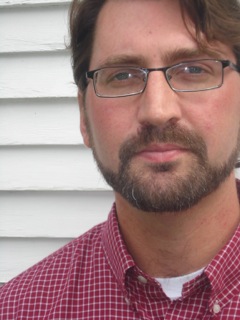Zach Falcon’s stories have appeared in the Sycamore Review, the Bear Deluxe Magazine, and the Bridport Prize Anthology. Born and raised in Alaska, he now lives in Maine. Associate fiction editor Brett Beach talked to Zach recently about Alaska, wild salmon, and his story “The Times of Danil Garland,” which appears in this issue of The Journal.

Brett Beach: You currently live in Maine, but your fiction takes place in Alaska. How do these two settings affect your work?
Zach Falcon: I was born and raised in Alaska, and spent most of my life there. Where I live now reminds me a great deal of my hometown. Maine and Alaska share many similarities of landscape and life. At the same time, Maine is removed enough from my experience to allow me space to remain intent on the unique aspects of Alaska that fascinate me. Maine largely dulls my homesickness, while still leaving me a small sharp edge to work with.
BB: Is Alaska ever more than just the setting for a story?
ZF: I would be hesitant to deploy Alaska as a mere backdrop for a story that could just as easily occur elsewhere. Instead, I am interested in stories where the characters and setting are inextricably linked and necessary to each other. One of the challenges I find in writing about Alaska is making the setting quieter, turning down its usual volume, and recording it as a place where people shop for groceries, have mortgages, and work in office jobs. Being Alaskan is significant and meaningful for people living such seemingly unheroic indoor lives, too.
BB: What was the initial spark for “The Times of Danil Garland”?
ZF: The scent of a fillet of king salmon. It is always best to buy wild-caught fish.
BB: In writing the story, where did you find yourself caught up?
ZF: The greatest challenge was releasing my stranglehold on narrative. I have generally felt more comfortable writing when cause and effect are explicit and logical. When everything necessarily clicks into the proper place. Of course, the danger of such over-resolved writing is that it can become all gears and no clock face. After drafting a series of increasingly dreadful clockwork stories, I set myself the challenge of writing without bossing the narrative. This story emerged.
BB: How long did you work on the story, and what were the challenges or pleasures in revision and editing?
ZF: The story came very quickly, which rarely happens for me. The main project of revision was reading it aloud over and over and attempting to reign in sentences that favored the ear over the eye.
BB: What is some writing advice that’s always stuck with you?
ZF: “If what you are writing doesn’t make you nervous, it’s probably not worth doing.” —Francine Prose
BB: What are you at work on now?
ZF: I’m thigh-deep in the cold stream of a novel, eyeing the far bank with the usual mix of hope and despair.
